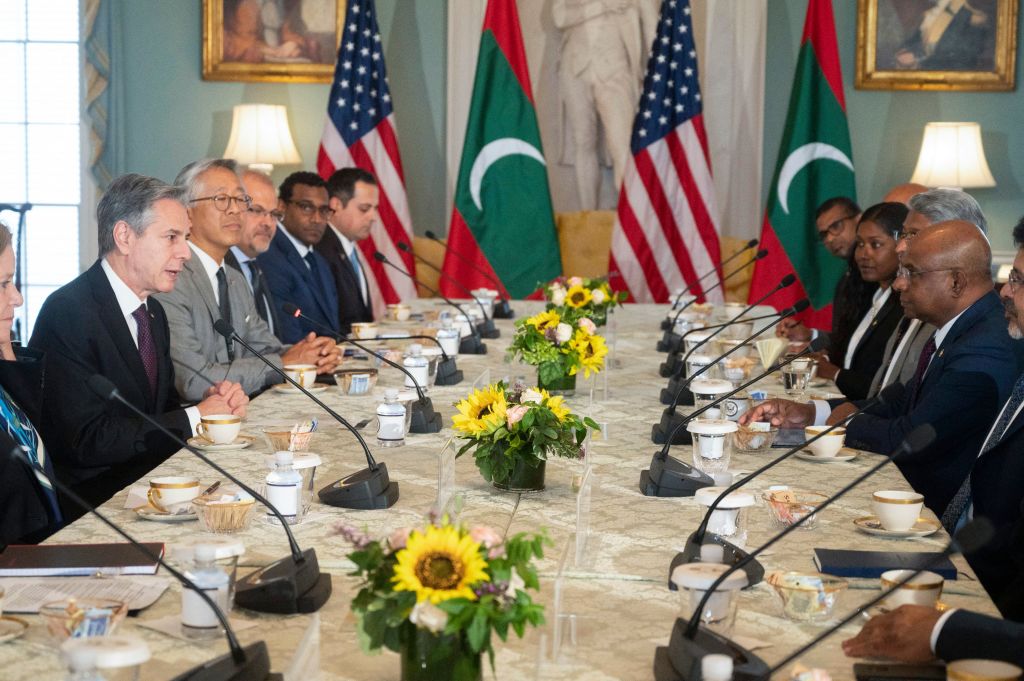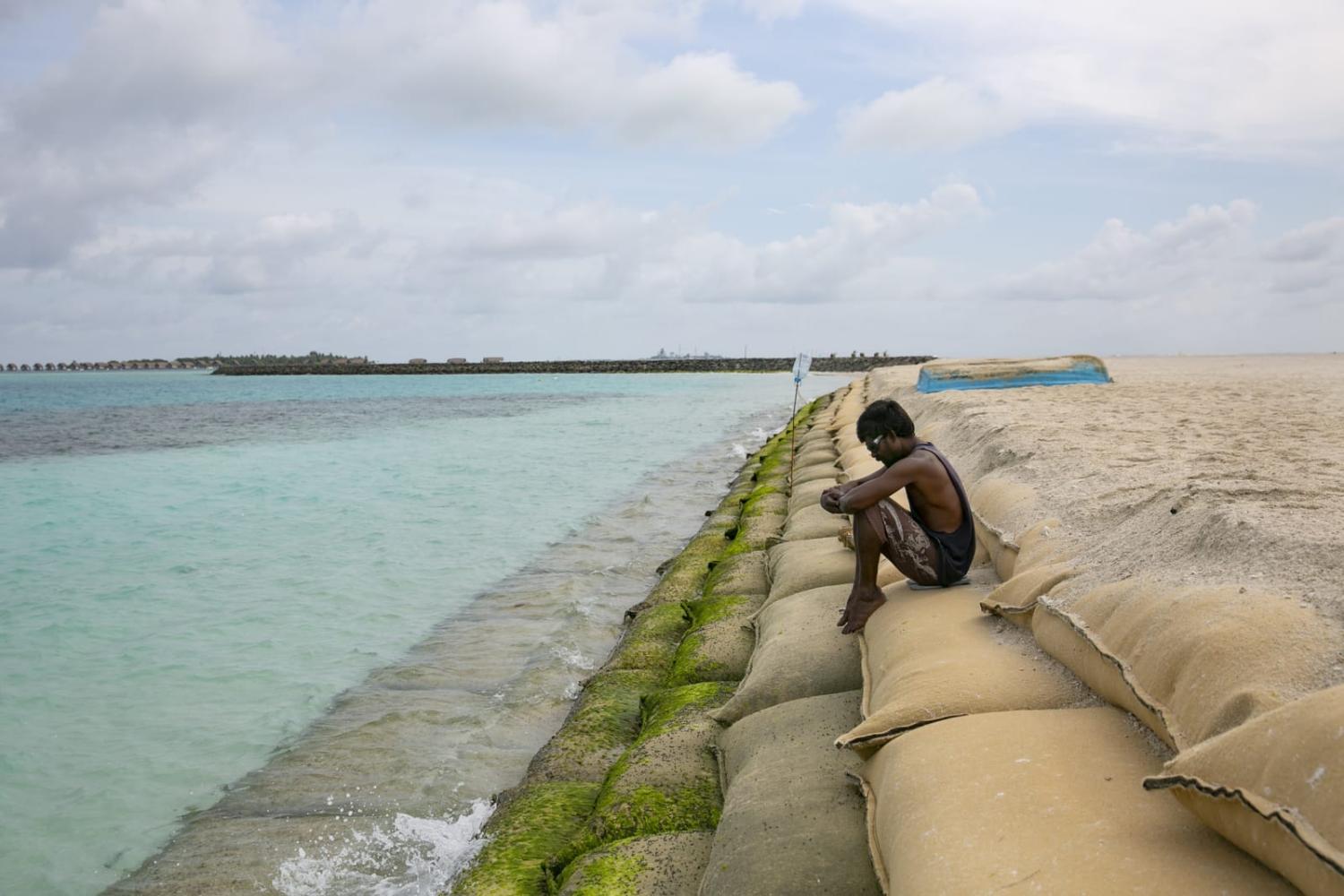The island state of Maldives has long been seen as a small player in South Asia, sheltered within an Indian sphere of influence. But while it still defers to India’s leading role in the region, Maldives is now reaching out to new security partners with the aim of anchoring itself in a broader set of relationships. This may serve to reduce its vulnerability to major power competition and help address other threats such as climate change.
With a population of around 500,000, Maldives is subject to a growing list of vulnerabilities.
While some small island states such as Vanuatu and others in the Pacific are engaging in a risky game of “playing off” competing powers against each other in the hopes of getting handouts from different sides, Maldives has taken an approach that provides stability and material benefits while avoiding the dangers that arise when big powers jostle for influence in a tiny country.
There was concern over China’s growing influence in Maldives until the 2018 election, which saw Ibrahim Mohamed “Ibu” Solih take over as president. His government has pursued a path of declaring India’s leading role as security provider to the region, emphasising India as the most “reliable ally to the Maldives, through thick and thin”, while also receiving considerable Indian security assistance. At the same time, Maldives has also quietly developing complementary security relationships with countries such as the United States, Australia and other like-minded partners. This approach allows Malé to expand its security and development options (and benefits) without causing anxiety in Delhi.
Maldives has many security needs. As an island state, maritime security (and, more broadly, “ocean security”) is a critical area for Maldives – with broader stability in the Indian Ocean “fundamental for the security of the Maldives” in the words of Foreign Minister Abdulla Shahid. Violent extremism also remains a significant issue, illustrated by the recent attempted assassination of Parliamentary Speaker Mohammed Nasheed. And although Maldives is now classed as a “middle income” state, it will require considerable assistance in the face of climate-induced threats that could threaten large parts of the country.

Solih’s India-First’ policy fits well with India’s “neighbourhood first” policy which is spurred by India’s desire to limit China’s presence in the region. Maldives also works with India in minilateral formats such as coast guard exercises with India and Sri Lanka and the Colombo Conclave of national security officials with India, Sri Lanka and Mauritius.
Maldives is now broadening its partnerships to establish international alignments as a key feature of its foreign policy and security. Since the late 1980s, Maldives has led international climate negotiations with small island states. It is influential among small island developing states around the world, which was further enhanced by its Presidency of the UN General Assembly in 2021–22. It is now developing bilateral security relationships with new partners, including signing a Framework for Maldives-US defence cooperation, focusing on exercises, logistics, information sharing and professional military education, which was welcomed by India.
This has been followed by several special forces exercises, the most recent Exercise Black Marlin, led for the US side by Australian Major General Dan McDaniel (who is on secondment to INDOPACOM). Through the US State Partnership Program the countries also work together in maritime domain awareness, humanitarian assistance and disaster relief, cyber defence, aviation security, military medicine and engineering and environmental defence.
Last month, Maldives re-opened its embassy in Washington where Shahid underlined a mutual commitment to “a peaceful, prosperous, and free Indo-Pacific” and illustrative of a newfound willingness to work with external partners on national and regional issues. Washington is also planning an embassy in Male.
Australia has also recently opened a High Commission in Malé, and pursued assistance and governance programs, which in future will almost certainly include climate change adaptation and mitigation. There is a growing focus on maritime security, which has included assistance in search and rescue and maritime strategy, with plans to expand into areas of maritime surveillance.
For the Maldives, extending security cooperation with the United States and Australia and other like-minded partners gives the small island state a voice in Indo-Pacific security affairs, in addition to building its capabilities.
For India, it’s a lesson in what can be achieved by working with like-minded partners in countries that may be anxious about India’s size and power.
For Australia, the value of small island partners should not be dismissed. The Australian government is working to better integrate climate into its regional security posture. An important element will be developing a compelling narrative as to why Australia is a dependable climate partner for island states. There is potential for Maldives and Australia to work to develop mutual security narratives that are meaningful to small island states around the region.

